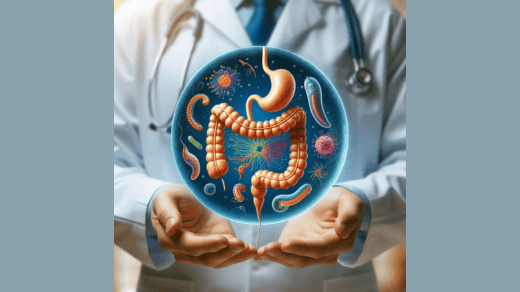Gut health plays a vital role in overall well-being. A gastroenterologist’s approach to the gut microbiome uncovers its deep connection to health. Studies show that a balanced gut microbiome can boost digestion, enhance mood, and strengthen the immune system. The gut microbiome’s influence extends to conditions like moline colorectal cancer, highlighting its importance. Understanding this complex ecosystem helps manage and prevent health issues.
What is the Gut Microbiome?
The gut microbiome consists of trillions of microorganisms, including bacteria, viruses, fungi, and other microbes. These tiny organisms form a complex community in our digestive tract. Each species plays a role in maintaining our health. Their functions range from aiding digestion to producing vitamins and defending against harmful bacteria.
How Gastroenterologists Study the Microbiome
Gastroenterologists use various methods to study the gut microbiome. Stool samples provide a non-invasive way to assess the types and amounts of microorganisms present. Advanced techniques like DNA sequencing help identify specific bacterial species. These methods allow doctors to understand how the microbiome changes with diet, lifestyle, and disease.
The Impact on Digestive Health
A healthy gut microbiome aids in breaking down food and absorbing nutrients. It also helps prevent digestive issues such as bloating, constipation, and diarrhea. By maintaining a balanced microbiome, one can reduce the risk of developing digestive diseases.
Connection to Mental Health
The gut-brain axis is a powerful link between our digestive system and mental health. Certain gut bacteria produce neurotransmitters like serotonin, which influence mood. Research suggests that an imbalanced microbiome might contribute to anxiety and depression.
Immune System Support
The gut microbiome plays a crucial role in training the immune system. It helps the body distinguish between harmful invaders and harmless substances. A diverse microbiome strengthens the immune response and reduces inflammation, which is linked to many chronic diseases.
Gut Microbiome and Disease Prevention
Research indicates that a balanced microbiome may lower the risk of several diseases. These include obesity, diabetes, and cardiovascular diseases. The gut microbiome’s role in preventing certain types of cancer, such as colorectal cancer, is also under investigation.
Diet and Lifestyle Recommendations
To maintain a healthy gut microbiome, consider the following:
- Diverse Diet: Eating a wide range of foods encourages a diverse microbiome.
- Fiber Intake: High-fiber foods like fruits, vegetables, and whole grains promote healthy bacteria.
- Probiotics: Fermented foods like yogurt and kefir contain probiotics that support gut health.
Comparison of Diet Types and Gut Microbiome Diversity
| Diet Type | Microbiome Diversity | Health Impact |
| Western Diet | Low | Linked to inflammation and disease |
| Mediterranean Diet | High | Reduces risk of chronic diseases |
| Vegetarian Diet | Moderate to High | Supports weight management and heart health |
Conclusion
The gut microbiome is a key player in our health. By understanding and nurturing it, we can improve digestion, mental clarity, and immune strength. Small changes in diet and lifestyle can make a big difference. For those facing health challenges, consulting a gastroenterologist can offer tailored insights and strategies.




